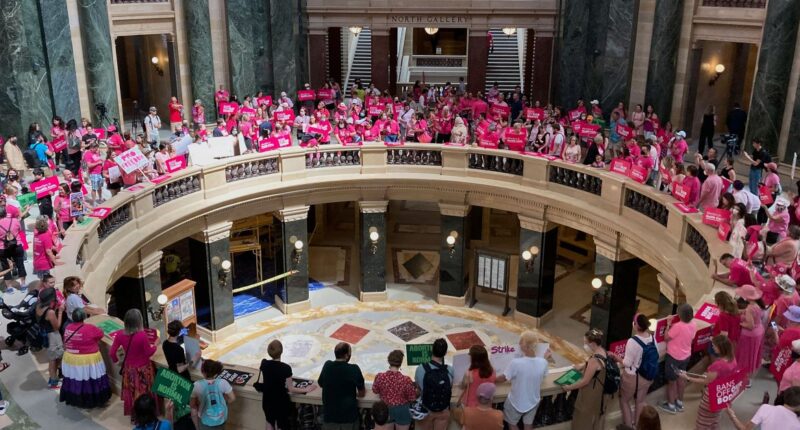Abortion Ban By Supreme Court – Abortion rights will now primarily be up to the states following the Supreme Court’s ruling in Dobbs v. Jackson Women’s Health Center, which invalidated the constitutional right to an abortion.
This implies that depending on where you reside, access to the surgery and its limitations are set to differ even more drastically. According to a TIME study of statistics from the Guttmacher Institute, a research organization that supports reproductive rights, at least 23 states are likely to outlaw abortion in some capacity, while 16 states and Washington, D.C., will maintain abortion rights. The status of the others is uncertain; some states will probably convene extra sessions of their state legislatures to decide on access, while others may see access curtailed following the midterm elections later this year.
Here is a summary of how abortion access could manifest itself in different states.
Health: Abortion Ban By Supreme Court – See States With Restricted Access
13 states have “trigger bans” that would outlaw abortion entirely or almost entirely if Roe were to be overturned.
Bans seem to be about to go into force right away in Kentucky, Louisiana, and South Dakota. The new regulations will take effect in Idaho, Tennessee, and Texas in 30 days.
State attorneys general, governors, or other officials must take action to implement restrictive abortion laws in Arkansas, Mississippi, Missouri, North Dakota, Oklahoma, Utah, and Wyoming.
Before Roe v. Wade was overturned, Oklahoma and Texas started exploring the limits of abortion restrictions. In May, Oklahoma passed the nation’s strictest abortion law, which, with a few exceptions, outlaws almost all abortions. Last November, Texas passed a bill outlawing abortions after around six weeks. Additionally, both states have trigger laws that now make conducting an abortion a crime.
States Strengthening Abortion Access- Details Below
California, Connecticut, Delaware, Hawaii, Maryland, New Jersey, New York, Oregon, and Washington started working on enhancing abortion access after a draft of the Supreme Court’s judgment was leaked in early May. This was done in order to be ready for the final decision.
In addition to continuing to offer abortion services, these states have strengthened a number of laws requiring insurance companies to pay for abortion costs, increased the number of people who can legally perform abortions, and changed extradition laws to shield abortion providers and patients who travel from states where abortion is prohibited from being extradited and prosecuted.
States With Limited Abortion Access- Details Explored
Six-week abortion bans had already been overturned by judges in Georgia, South Carolina, Ohio, and Iowa due to violations of Roe v. Wade. Each state will now probably try to immediately reintroduce those laws.
Florida and Arizona both passed 15-week restrictions earlier this year; they were originally scheduled to take effect later this summer. Now, state legislatures might adopt more stringent restrictions on abortion.
Before the Supreme Court’s ruling, West Virginia and Michigan both proposed legislation that would make abortions after 15 weeks illegal. Both of those statutes have been contested in court, and the case is still pending.
Alabama will probably decide whether to settle the legal challenges to a 2019 legislation outlawing almost all abortions or reinstate a pre-Roe abortion ban. The Iowa Supreme Court recently found that abortions are not protected by the state constitution, opening the door for abortion restrictions to be enacted by the legislature.
An abortion restriction that was dormant in Wisconsin but was overturned by Roe v. Wade may now be reinstated. (The attorney general of Wisconsin has declared he will not enforce the ban; nevertheless, local prosecutors may consider doing so.)
States where access will remain the same
The availability of abortion will remain unchanged for those in Colorado, Illinois, Maine, Massachusetts, Nevada, Rhode Island, Vermont, and Washington, D.C. A number of these states have established legislation protecting those who seek or perform abortions and establishing abortion as a legal right. Even though the states do not specifically preserve the right, abortion will probably continue to be lawful in Minnesota and New Mexico.
More Must-Read Stories From Washingpost



